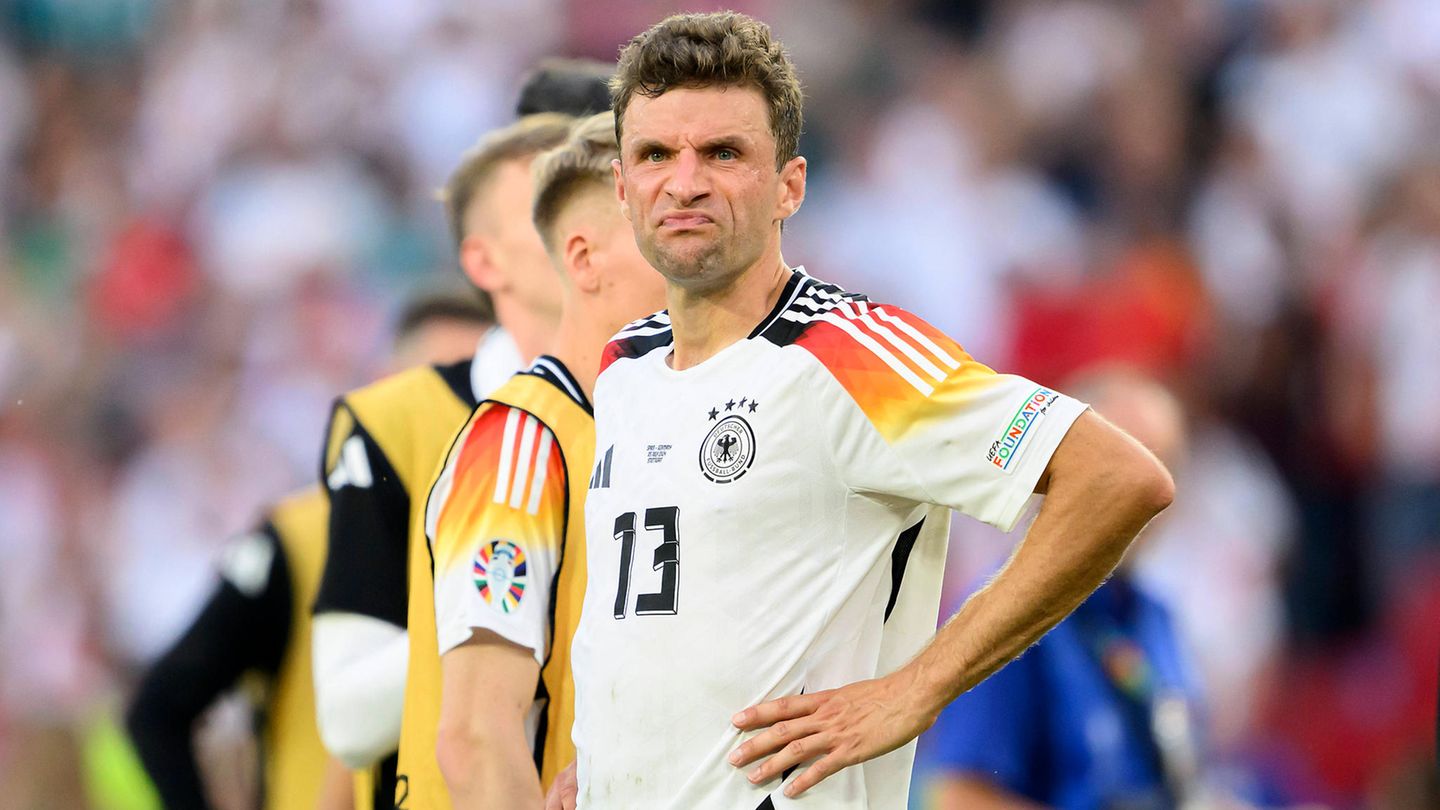Nobody wants to be a loser. Nevertheless, defeats are part of life. Kathrin Seufert is a sports psychologist and knows how to fail successfully and what we can learn from top athletes.
The European Football Championships show once again that losing is not easy. Sometimes it is the pitch that is to blame, sometimes the referee. Psychologists have observed that we like to celebrate successes as our own, but prefer to blame defeats on others – and not only in Sportsbut also in relationships or at work. Why are we like this, Ms. Seufert?
There is a bit of self-protection behind it. Instead of saying that I wasn’t at my best today, then the Frankfurt pitch wasn’t ideal. It’s different when you win, you want a piece of the pie – of the positive emotions and endorphins.
Some people are completely devastated by defeat, while others even seem to draw energy from setbacks. How does that happen?
The way we deal with defeats is as varied as the people who experience them. It has a lot to do with our own expectations, the goals we set and our personality.
In what way?
If I decide to climb three stairs, that is different from if I decide to climb ten floors. And of course it plays a role how important I attach to the goal I have set. If I don’t care whether I reach the goal or not, then not achieving it won’t bother me. But: If there is no challenge, the feeling of self-efficacy, the feeling of “I did it, I developed” is not possible. Setting higher goals is therefore important in order to be able to develop skills at all. No top athlete would have come this far without a certain level of toughness with themselves.
To person
Kathrin Seufert is a freelance sports psychologist. She used to be a competitive athlete herself, but now she coaches male and female athletes and trainers. Her focus is on football, ice hockey and swimming. She is the main author of the book “Mental Training in Swimming”.
Is there such a thing as successful failure?
Looking back, it’s definitely the case if you manage to learn something from a defeat that helps you to be better prepared for the future. This could be a supposed weak point that you can then work on specifically once you’ve identified it.
Can top athletes deal with defeats better?
When you have to deal with setbacks frequently, you learn from them. Michael Jordan once said: “In my career, I’ve missed over 9,000 shots. I’ve lost almost 300 games. 26 times I’ve been trusted to make the game-winning shot and I missed it. I’ve failed over and over again in my life. That’s why I’m successful.” That sums it up quite well. Practice makes perfect. Even a doctor has to be able to function again immediately after a setback.
Losing is dramatic the first time, but hardly relevant the 100th time?
When we lose a tournament or a job for the first time, we don’t know how to deal with it; the situation is new to us. Once we’ve experienced something, it gives us the chance to look back and see what helped us get through it. This builds up a repertoire that we can draw on next time. The more often we experience such situations, the bigger this repertoire becomes.
So the trick is simple reflection?
Everyone has a chance to grow from a defeat. Whether or not you can take advantage of it depends on a number of factors, including time and a strong personality. If you experience a number of setbacks in a very short space of time, and it is not possible to pause and look back, it is difficult to process them.
What role does self-confidence play in dealing with losing?
Self-confidence, i.e. an awareness of one’s own abilities, plays a major role in correctly assessing what has happened. For example, it can be the deciding factor in whether a footballer still believes he can score a goal when he is behind in the 120th minute or not.
Do you have to be able to forgive yourself to be a good loser?
It is a helpful trait to take responsibility for the defeat yourself – for example, if you are responsible for an own goal. The question is, however, whether there is anything to forgive at all. Sometimes you are simply unlucky.
Is a team defeat just as bad as an individual one – or does the following really apply: shared suffering is half the suffering?
You can’t say that across the board. Of course, there are always allies in a team that you can talk to. But the perspectives of individuals are extremely different. The situation of Jamal Musiala, who certainly still has a few tournaments ahead of him, is very different from that of Toni Kroos, Thomas Müller or Manuel Neuer, for whom this could have been their last tournament.
The emotions of the athletes on the pitch are one thing, but those of the fans are something else entirely. After the German team was eliminated from the European Championship in the quarter-finals, many people identified a clear culprit: the referee. A petition was even started to demand that the game be replayed. How do you explain such a reaction?
The team’s elimination means that the euphoria that had built up in the country and the time of excitement suddenly ends. Many people are trying desperately to prevent this from happening. So – partly out of a feeling of injustice – someone is being sought to be held responsible. In this case, for many it is the referee. This is also due to our times and the desire not to have to think about the terrible things that are happening in the world for a moment. The desire for good news.
Source: Stern
I’m Caroline, a journalist and author for 24 Hours Worlds. I specialize in health-related news and stories, bringing real-world impact to readers across the globe. With my experience in journalism and writing in both print and online formats, I strive to provide reliable information that resonates with audiences from all walks of life.




